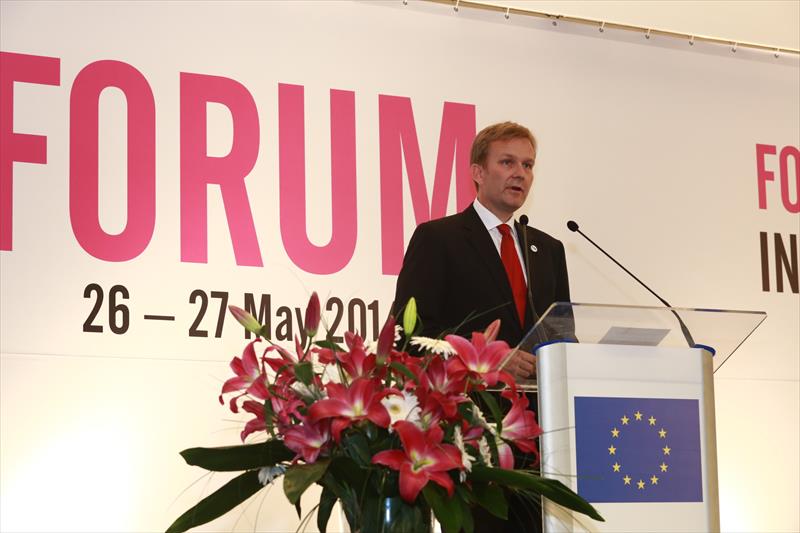A two-day long Forum for Prosperity and Jobs took place in Sarajevo on 26 and 27 May. The Forum aimed to identify measures that will attract investment, broaden access to economic opportunity, spur the creation of jobs and enhance social protection.
The Forum convened interested parties and the broader citizenry of Bosnia and Herzegovina (BiH) to identify a package of concrete policies and measures to help the country’s economy, recently seriously affected by the devastating floods. The programme consisted of an opening plenary session on the first day and five workshops on possible reforms that should yield recommendations for concrete actions to be undertaken.
The EU Special Representative and the Head of EU Delegation, Ambassador Peter Sorensen opened the Forum and said at the event:
“Economic recovery in these very difficult times is more important for BiH than ever. Our ‘Forum for Prosperity and Jobs’ provides a platform for all the citizens of this country to do exactly this: to initiate a socio-economic reform process that will lead to more investments, more employment, higher revenues for the public budgets, and ultimately a better standard of living for each citizen and for society as a whole. We have representatives from all segments of the society of BiH here with us today, academia, political parties, civil society representatives, think-tanks and others. I am pleased to see so much expertise gathered in economic reform and transition.”
The Minister of Foreign Affairs of Germany, Frank-Walter Steinmeier, the Deputy Prime Minister of Turkey, Ali Babacan, the Chairman of the BiH Council of Ministers, Vjekoslav Bevanda, and the Chairman of the BiH Presidency, Bakir Izetbegovic, spoke at the opening session. Mr. Steinmeier said that the forum should invite BiH politicians to have the courage to do the necessary reforms to strengthen the economy in the country.
„Let me remind you that only 10 years ago Germany was among the countries with the highest unemployment rate in the EU. Today, the German economy is strong thanks to reforms“, Mr. Steinmeier stated.
Mr. Babacan emphasised that coexistence, compromise, consensus, cooperation are what BiH needs in order to move forward and this is what will create political stability and the predictability that will attract investors and foreign investment.
“What we need now in BiH is help from our friends all around the world. We need to improve the business environment and attract foreign investment. We also need to reform the labour market, eradicate corruption and make institutions more functional. This is the only way we can move forward“, said Mr Bevanda.
Mr. Izetbegovic said that BiH needs to thoroughly reform every sector of the economy and public governance.
„Without reforms, we cannot have economic growth and economic development, which is now needed more than ever“, said Mr. Izetbegovic.
The second day of the Forum started with the presentation ‘Challenges in Transition’ by Milica Uvalic, Professor at the Faculty of Political Sciences at the University of Perugia, Italy. Professor Uvalic elaborated in practical and theoretical terms what are the major challenges facing every reforming economy, especially those that underwent transition in the last 25 years.
Director General of the EU Directorate-General for Enlargement, Christian Danielsson, chaired the presentations of recommendations and suggestions produced by the five workshop groups earlier that day.
“ The economic reforms and development are the core values of the EU enlargement process. And this is long term. In the short term, be sure that we will stand with you in dealing with the consequences of the devastation caused by floods“ stated Mr. Danielsson. Following the closing address of the BiH Foreign Minister, Mr. Zlatko Lagumdzija, the Chair of the Forum, Ambassador Peter Sorensen concluded the Forum.
The Forum was a high-profile gathering of citizens/institutions of BiH. There were 400 attendees including politicians, the business community, academic leaders, civil society, and representatives of the international community.




